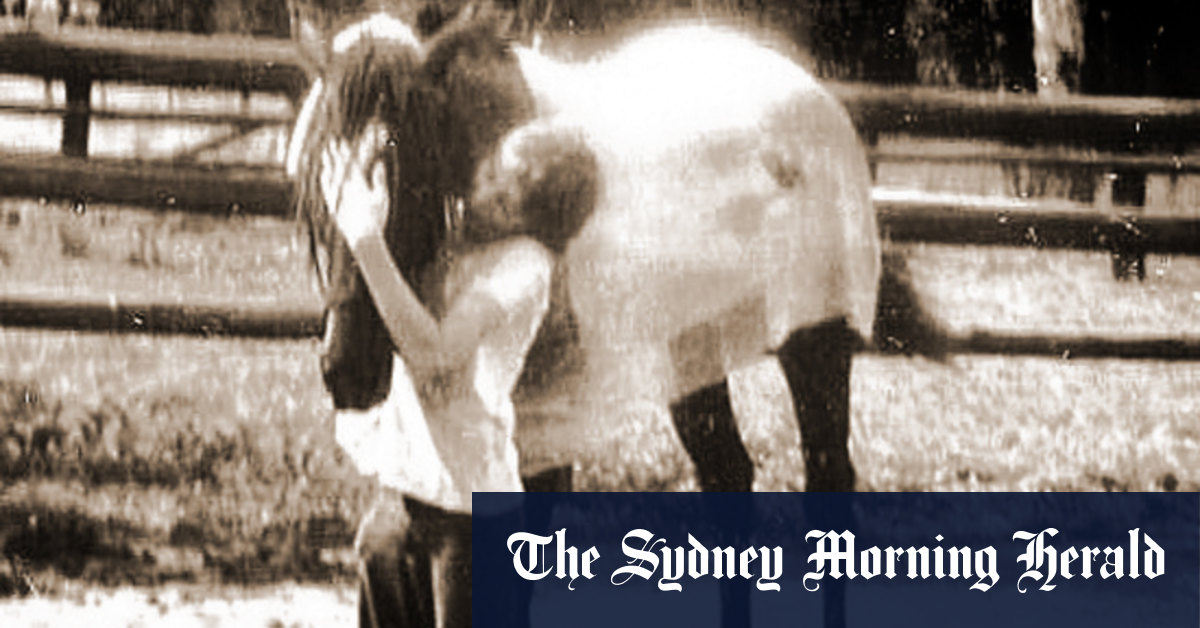Normal text sizeLarger text sizeVery large text size
No one took responsibility for Dennis Green when he was a 14-year-old boy.
He was licensed to be an apprentice jockey by racing’s governing body, and was sent to live at Caulfield stables where he was bullied, tortured and raped.
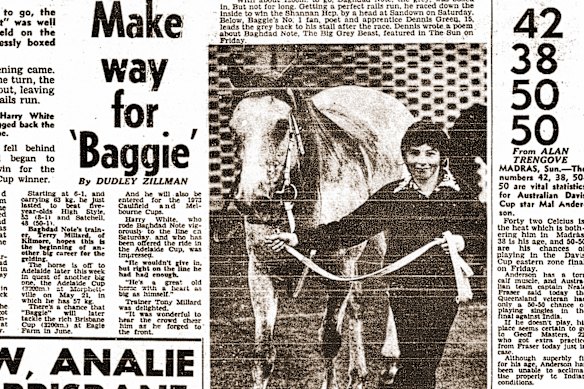
Dennis Green as a 15-year-old apprentice jockey with Baghdad Note at Sandown Racecourse during the 1970s.
He would be woken at night in the apprentices’ dormitory by drunken, drug-using stable staff, who would subject him to abuse.
The teenage Green never spoke up, fearing further retribution. No one in authority ever intervened.
By the time he was 21, the apprentice jockey was too heavy to ride and had become a heroin addict to deal with the torment.
His addiction led to crime, which led to time in jail. It took him 30 years to get clean.
Loading
Now, 50 years after he left his working-class parents’ modest Broadmeadows home to work in Victoria’s racing industry, he is still waiting for someone in authority to take accountability for the pain and ongoing suffering that he and other apprentices have had to endure.
But as he waits for legal retribution, he fears a “loophole” in legislation is going to take that right away.
‘Morally bankrupt’
For the past seven years, Green has waged a legal battle seeking justice and accountability for crimes against him and other apprentices.
Law firm Maurice Blackburn lodged civil action against Victoria Racing Club Ltd in 2024, seeking redress on behalf of Green. The VRC governed racing in this state until Racing Victoria was formed in 2001.
The case is still working its way through the Supreme Court.
Green says the VRC is fighting his claim on two key points:
Green was awarded $110,000 in a workers’ compensation claim against the state’s governing body of racing in 2008, and as part of the settlement signed a deed of release; absolving them of any further liability; and,They do not owe the same duty of care as a formal employer.
Green says he does not remember signing the deed of release.
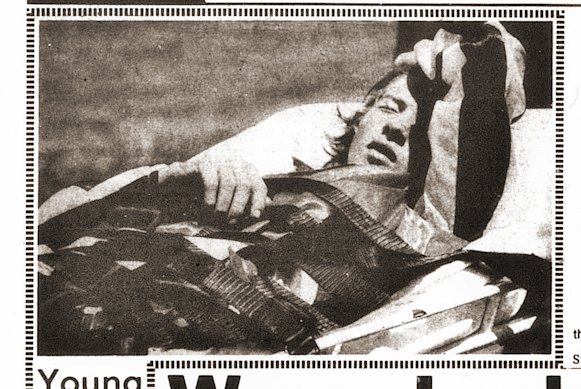
Green, then 18, is taken to hospital after a fall at Caulfield during the 1970s.
“I have no recollection of signing that,” he says. “I mean I believe I did. I have seen my signature and everything. But I was so otherwise occupied.”
He was otherwise occupied because he was asked to sign the WorkCover settlement – for lost wages only between 2001 and 2008 – in an interview room during a 2008 County Court criminal case in which he was a key witness.
Two of the Caulfield stable perpetrators from the 1970s, John Finlayson and John William Honeysett, were found guilty by the County Court of indecent assault. Green laid the initial complaint in the early 2000s.
Loading
But Green was unable to pursue a common law damages claim at the time because the Limitations Act was not amended until 2015, opening the door for claims involving historic crimes against children.
He testified at the Royal Commission in 2014 that prompted the legislative amendments.
But Green says the VRC is arguing that he does not have the ability to set aside his prior deed.
Green says the VRC argue that the amendments to the Limitation of Actions act do not apply to him because the abuse occurred in the workplace and his prior deed of release relates to a worker’s compensation claim.
“It is a terribly morally bankrupt argument to make,” Green says.
“We’ve got a scenario here where they are using a loophole in legislation, which was designed explicitly to address child abuse, to actually avoid accountability for child abuse in their industry. That’s the scandalous part of it.”
Further amendments were made to the Limitations Act in 2019 and again in 2021, allowing survivors of child abuse to apply to the court to set aside prior deeds of release that were entered into before 2018.
Green has applied to the court to set aside his prior deed of release under these reforms.
Racing Victoria, as the state’s governing body of racing since 2001, has declined to comment on ongoing legal matters. The Victoria Racing Club was approached for comment.
Wake in fright
Conditions were tough for apprentices during the 1970s.
There were no holidays, and half a day off every fortnight. Green only saw his parents at the occasional race meeting.
But the true horrors started when the teenager was forcibly introduced to drugs by the stable hands who molested him, often arriving back at the stables after Caulfield’s Turf Hotel had closed.
He would lay awake at night in fear.
He would try and manipulate his abusers to leave him alone, but nearly always failed.
Other apprentices in the room would pretend to be asleep.
He was sexually assaulted and abused with the end of bottles and horse whips while he was held down.
“I didn’t speak up because I felt powerless and was terrified of retaliation,” Green says.
He says he felt like the stables and the industry “owned” him because he was indentured as an apprentice by the state’s governing body of racing.
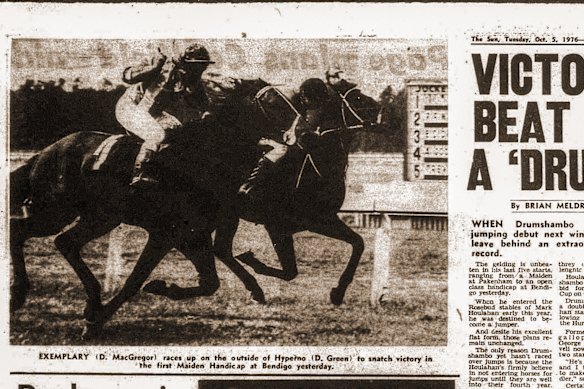
Green rides Hyperno, right, in a Bendigo Maiden in 1976.
On top of that, he did not want to let his father down. He wanted to make his father proud and felt at the mercy of the job his father had arranged for him.
It was not until he turned 21 in 1981 that he felt like he could finally speak about the abuse to a psychiatrist. He was one year into a five-year bond with drug rehabilitation facility Odyssey House.
‘Devastating’ roadblock
Green did not emerge from drug and alcohol addiction until 2009, more than 30 years after he had been dropped off at stables by his father as an innocent teenager.
The addiction had taken a heavy toll.
He has long been estranged from his daughter and the mother of his child.
He has served several stints in prison – from being associated with a heroin importer to cultivating marijuana.
He lost his father to suicide in 1979, a death he blames on the guilt of finding out about his son’s abuse.
Green, 67, has not worked in the racing industry since laying the initial police complaint in the early 2000s and has been on the Disability Support Pension since 2001.
He kicked his addictions 12 months after the 2008 County Court case, dubbed the “Jockey Ritual Trial” by the media, and it changed the trajectory of his life.
He was able to use his WorkCover payout – $70,000 after costs – to go back to school.
He obtained a Bachelor in Counselling from the Australian College of Applied Psychology in 2014.
This on top of a Diploma in Classical Music, obtained while in prison. He is now into his second-last unit in a psychology degree.
But it was in 2018 that Green’s life hit another “devastating” roadblock.
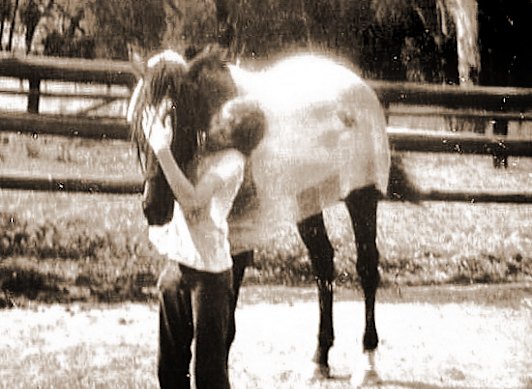
Green starts his jockey apprenticeship as a teenager during the 1970s.
His bid to become a counsellor, and help other men, was denied because his criminal history prevented him from being granted a working with children certificate.
“I find it difficult to comprehend that me, who was not protected as a child and the subsequent fallout, is not eligible for a working with children’s check, and yet we see how loosely that was applied to others,” Green says.
“It’s so incoherent, so many elements of this for me. I feel like I’m living in an alternate universe. I was never planning to work with children, but you have to get that to be employed in any context – to be able to work with people.”
Loading
Green took his concerns to law firm Maurice Blackburn in 2018, which corresponded with changes to the Limitation Act and led to his current civil case.
‘Hidden in the dark’
Further frustrating Green has been the release of Racing Victoria’s long-awaited “restorative engagement program” for “impacted individuals”.
While he is not eligible for the program because of his legal case, Green believes it has fallen a long way short of what was intended.
A 78-page review handed down by the Office of the Racing Integrity Commissioner in September 2023 called on racing’s three codes – gallops, harness and greyhounds – to draw on “best practice from other sports and industries” to create a redress scheme for victims.
Instead, Racing Victoria has established a program.
It opens for submissions from Monday, September 1, for six months.
The two main components will be access to an individual story-telling meeting with an RV representative, designed to be “healing for participants”, as well as access to free counselling (up to 10 sessions) and free psychiatric care (up to four sessions).
But Green says Racing Victoria’s efforts, posted on the industry’s website last week, were not only difficult to find for victims but were “meaningless”.
He said the fact that “statements made by RV during and in relation to the program are to remain confidential” meant that the story-telling process would remain “hidden in the dark” and would perpetuate deniability and non-accountability.
“The language could not be further from redress,” Green says. “There is no redress there, there is no redemption for a victim there.
“The way it is worded, it acts as a deterrent for anyone who has already experienced decades of non-ownership, indifference, silence and non-response.
“It would deter me (from coming forward), and I am well practised at telling my story.”
Green says the need for justice and accountability for all the indentured apprentices of the past has always been the driving “moral issue” for him.
“You are 14 years old and dragged into an industry, and they just don’t care what happens to you,” he says.
“That’s why it is important. It’s a bigger issue than just my case. It would help other kids, my peers from that era.”
Racing Victoria said that “participation in the Program does not replace other legal processes or avenues that may be available to impacted individuals”.
National Sexual Assault, Domestic Family Violence Counselling Service 1800RESPECT (1800 737 732).
News, results and expert analysis from the weekend of sport are sent every Monday. Sign up for our Sport newsletter.

